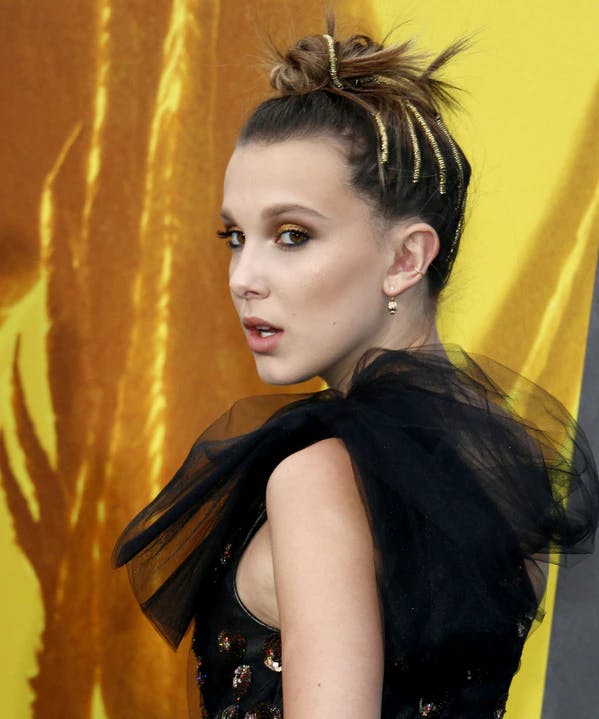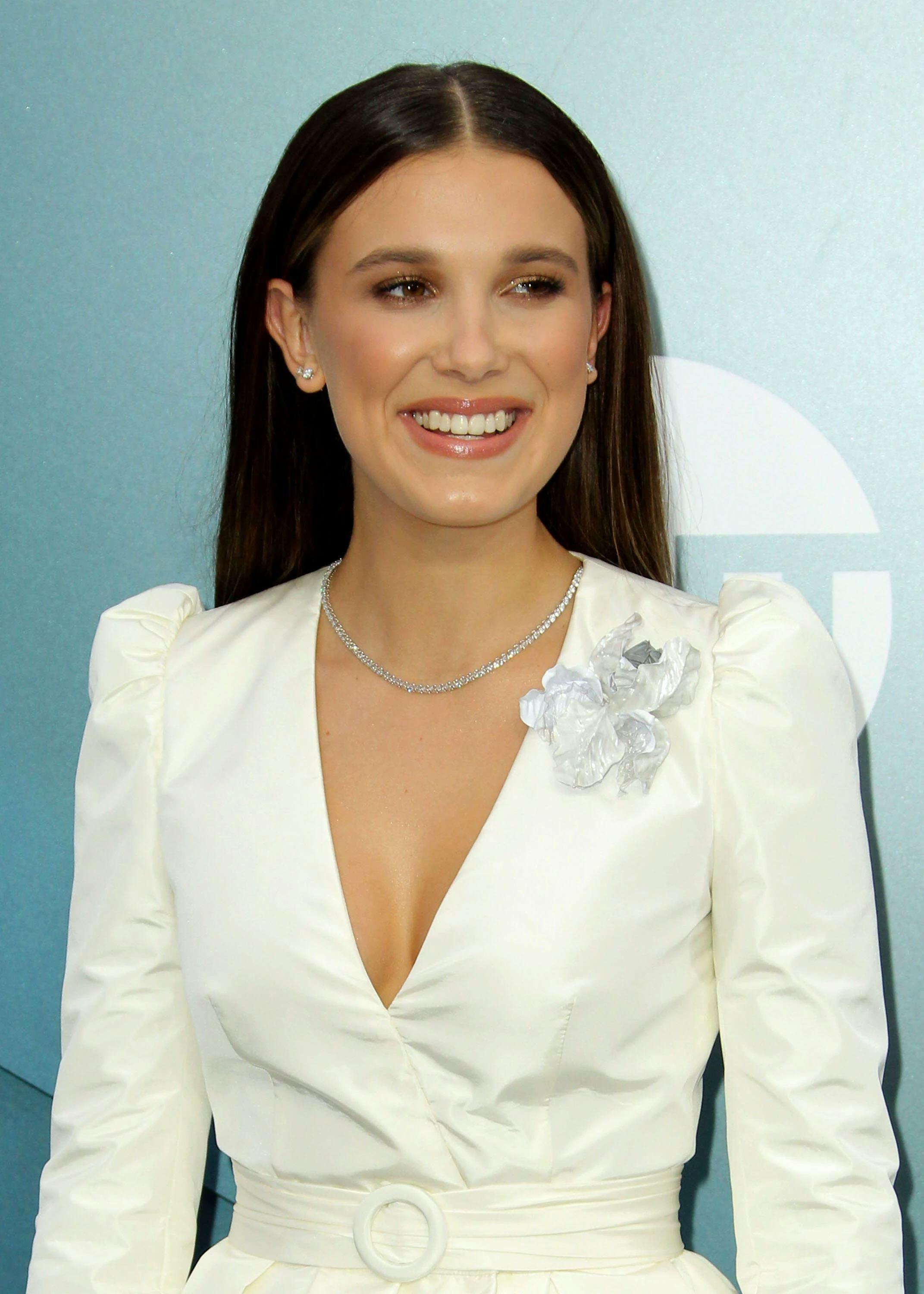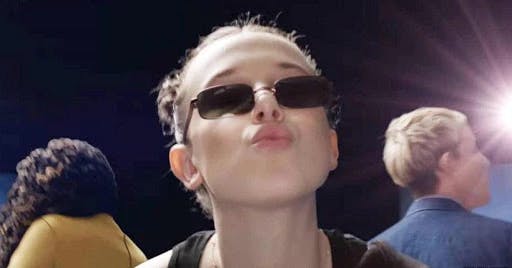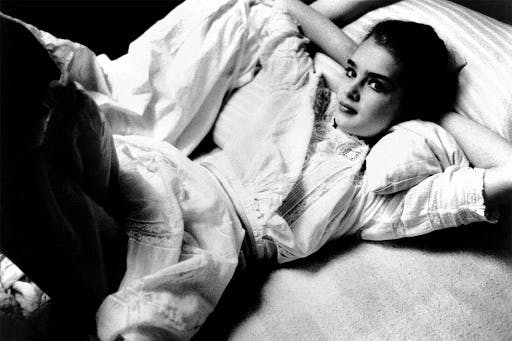Why Does Hollywood Insist On Sexualizing Children?
We know that the world is filled with horrible people like Jeffrey Epstein who would gladly exploit children in order to fulfill their sick desires. What is it in our society that would embolden these child sexual predators to think that it is acceptable for them to act on their sick perversion towards children?

Hillary Duff recently made a statement on her Instagram about being perturbed by a stranger taking pictures of a group of 7-year-old children at her son’s football game. The photographer resisted her request to stop by claiming that it was perfectly legal for him to do so.
Sure, it might be legal. But is it moral or ethical for him to commodify children like this? Increasingly, we are seeing more and more sexualized images of children and teens in today’s media. The New York Times reported that, in 2018, tech companies uncovered over 45 million online photos and videos of children being sexually abused — more than double what they found in 2017.
The New York Times reported that in 2018, tech companies uncovered over 45 million online photos and videos of children being sexually abused
Another poll of 2,000 teens found that nearly 75% had received pornographic direct messages from strangers, even if they had a private account. And 55% of victims of sex trafficking in 2015 met their abuser through a website, app, or text.
Among the latest casualty of the sexualization of children in the entertainment industry is actress Millie Bobby Brown from the hit Netflix show Stranger Things. Brown recently posted about her struggle with child sexualization on her Instagram where she says she gets “frustrated from the inaccuracy, inappropriate comments, sexualization, and unnecessary insults that ultimately have resulted in pain and insecurity for me."
What Is Causing This Disturbing Trend?
First, let it be said that it’s neither appropriate nor right to judge or criticize Millie Bobby Brown as an adult since she is, after all, still just a child. The blame for all of the inappropriate creative decisions and scandals here falls on Brown’s parents and the adults in charge of managing her career.
The blame for all of the inappropriate creative decisions and scandals here falls on Brown’s parents and the adults in charge of managing her career.
The earliest incident which sexualized Brown was the August 2017 cover of W Magazine, where it listed the then 13-year-old child actor as part of a “Why TV Is Sexier Than Ever" magazine story.
Granted, it could just be that the editors at W Magazine were asleep at their job because, otherwise, they wouldn’t have approved the listing of a 13-year-old girl as part of the “sexy” and “hot” list. However, this seems to be an ongoing trend with Brown. The most recent scandal of her sexualization can be witnessed by her red carpet outfit at the SAG Awards where she wore a mature makeup look paired with a plunging neckline dress. Her styling for the event had the internet in an uproar over the teen actress’s inappropriately aged-up look.

But this wasn’t the only time she had been placed in an inappropriate position as a minor. If you remembered the summer of 2018, Maroon 5 released their super fun and catchy “Girls Like You” single with that awesome circular motion-control shot music video of famous women grooving and dancing sexily behind Adam Levine. Personally, I thought the video was really cool and well made. However, on the second take, it got a little bit creepy when I realized how it also included the then 14-year-old Brown among the grown women dancing flirtatiously with Adam Levine.

The video shows Brown with her cropped zip hoodie falling off one shoulder, blowing a kiss to the camera. Cut to the next scene showing Ellen DeGeneres looking confused and befuddled. I feel you there, Ellen, I’m confused and befuddled too. Because what on earth is a 14-year-old girl doing in a music video with other grown women dancing sexily as Adam Levine sings about how “Girls like you running round guys like me till sundown”?
Why the grownups who are responsible for Millie Bobby Brown’s career would think that having the child featured in a video with other adult women dancing sensuously is a good idea is beyond me. I myself had no idea that the song had a verse about a stripper engaging in traffic violations because, at first, I couldn’t understand what Cardi B was rapping. Cardi B sings:
“Not too long ago, I was dancing for dollars / Know it’s really real if I let you meet my mama ... I don’t really want a white horse and a carriage / I’m thinkin’ more of white Porsches and karats / I need you right here ’cause every time you call / I play with this kitty like you play with your guitar”
I have no benevolent explanation why her manager/parents thought it was totally okay for the then 14-year-old Millie Bobby Brown to be part of that music video. But maybe I shouldn’t judge or blame Brown’s agent/manager for making that decision because it was possible that they simply weren’t aware of what the song was about. I like to give people the benefit of the doubt, so maybe that ignorance also explains why her manager/agent booked the 14-year-old Brown to cover Cardi B’s traffic delinquent stripper verse of the song on stage during a Maroon 5 live concert.
A History of Sexualization of Children in Hollywood
The sexualization of children in the entertainment industry isn’t a new thing. Remember Brooke Shields? Back in the ‘70s, 10-year-old Brooke Shields was photographed nude for a Playboy publication called Sugar and Spice.
Excuse me, say that again?
Yes, you heard it right. Brooke Shields’s mother (Teri Shields) thought it was a good idea to have her 10-year-old daughter photographed in the nude for an editorial spread for a Playboy publication. Horrifying, I know. Yet it was a gamble her mother took which won Shields the lead role (as a child prostitute) in her breakout 1978 film Pretty Baby. Even though critics loved the film, the public wasn’t thrilled and the movie was badly received by audiences.

Exploitative Adults Commodifying Children
It was also a little weird (albeit coincidental) that Brooke Shields played the role of Hannah Montana’s mom because Miley Cyrus (the star of Hannah Montana) had a similar scandal of being sexualized as a child for another editorial spread.
Back in 2008, when Cyrus was only 15 years old, she posed for renowned photographer Annie Leibovitz for a Vanity Fair shoot. One of those photos featured her with her bare back fully exposed and her front covered with a sheet. It too caused an uproar because the public thought it was highly inappropriate for a 15-year-old to be depicted in a sexually provocative manner.
These kinds of editorial photo shoots are very expensive. It’s a case where every detail in the editorial is attended to. Those responsible for creating the cover story for Vanity Fair made a decision about every single element of this picture. The creative team determined exactly what they wanted to do – which was to present a childlike figure who was also sexualized in order to help sell their product. This was also the case with the then 17-year-old Dakota Fanning fashion spread for Marc Jacobs's Oh, Lola! perfume. She is styled in a minidress, leaning back and resting a giant bottle of perfume topped with a rose on her crotch. The advertisement was deemed so sexually provocative that it was banned in Britain.
Closing Thoughts
Hollywood and the entertainment industry have had a terrible history of exploiting children. When Hilary Duff politely asked the photographer to stop taking pictures of other people’s children, it was frightening to see how an adult would validate his actions by claiming that what he was doing is acceptable because it was “legal.”
Just because something is legal doesn’t make it right. While it's completely legal to dress children inappropriately and have them act in sexually provocative ways, it doesn’t make it right. It's dangerous because it signals a child’s sexual availability to potential creeps and predators. Millie Bobby Brown is just the latest in a long line of victims in the entertainment industry. That's why it was so disturbing to see her in the white outfit with the plunging neckline to the SAG Awards. Adults have a duty and responsibility to protect children from sexualization because, otherwise, society will run the risk of normalizing pedophilia.